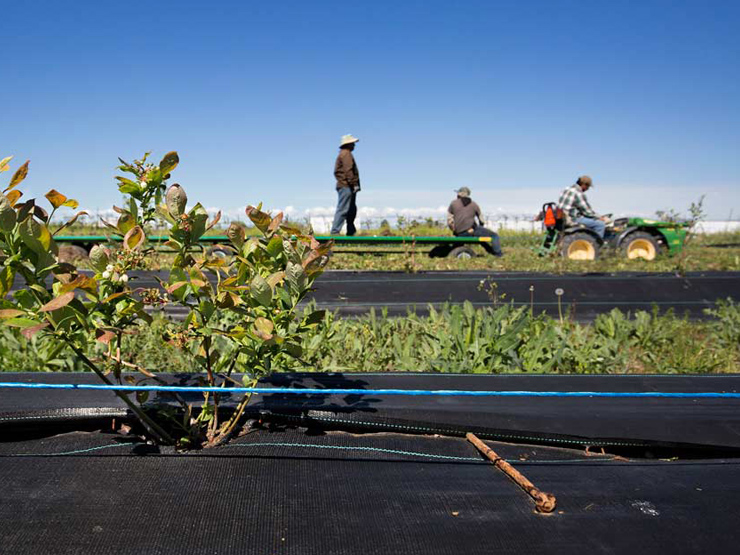
The blues are changing their tune
Like most blueberry growers, Jeff and Terri Weijohn of Blueberry Hill Berries have the bulk of their acreage in the Duke variety, the quiet workhorse of an industry that has seen unprecedented growth over the past 25 years.
But also like most blueberry growers, they are trying new varieties, looking for something that might ripen later and appeal to wholesale customers as fruit begins to fetch plateauing prices.
The Weijohns have several test rows of newcomers such as Last Call, Calypso and Clockwork at their Wapato, Washington, farm.
“We want to be dependable and provide berries for them throughout the season,” said Terri Weijohn.
Diversifying varieties and periodic price softening are common growing pains of any maturing industry, even so-called “super foods” like blueberries. Everyone knows apples went through the same problems 30 years ago.
But blueberries don’t follow all the same rules.
For one, most blueberry shoppers don’t care about variety. Other than a few direct-market exceptions such as U-pick or urban farm markets, consumers just want typical berries.
Retailers usually know the difference but label scant few varieties in the stores. Because of that, growers choose varieties to either offer a better product to their buyers — wholesale firms, packing sheds or retail stores — or extend their season.
Dukes typically ripen in June and July, considered the early season, while some of the newer varieties may extend harvest through August or longer.
Secondly, though blueberries were first cultivated in New Jersey in 1916, they grow anywhere and everywhere now, from northern, cold climates to the tropics.
Washington is the nation’s leading producer, but Georgia and Florida routinely make the Top 10 list. An ever-diversifying palette of varieties serves those different areas. Some, like cherries, require winter chill, while others don’t.
And they’re rapidly spreading overseas. The United States produces 55 percent of the world’s blueberries, but market share is gradually evening out with growth in Europe, South America and Asia, said David Brazelton, president of Fall Creek Nursery, a Lowell, Oregon, global plant supplier for the berry industry.
“Blueberries have become a global crop,” Brazelton said.
Fuente: www.goodfruit.com






